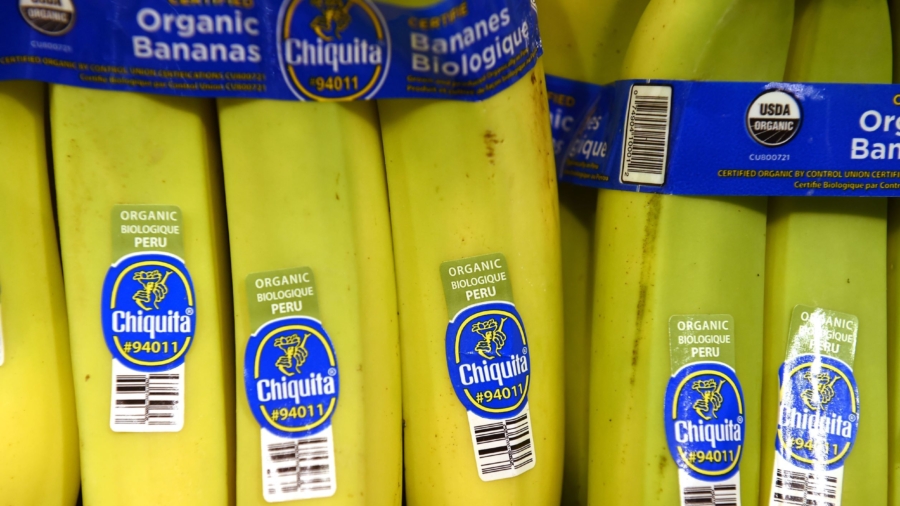A federal jury in Florida decided this week that American produce giant Chiquita Brands should pay $38.3 million to the families of eight people killed in Colombia by members of a paramilitary faction Chiquita had funded over the years.
The jury’s decision on June 10 is part of a long-running civil lawsuit against Chiquita, a major global grower and distributor of bananas and other produce. The plaintiffs in the case are a group of nine families of people allegedly killed in the 1990s and early 2000s by members of the Autodefensas Unidas de Colombia, which is known by the Spanish acronym AUC and in English as the United Self-Defense Forces of Colombia.
The plaintiffs in the case had argued Chiquita should be held financially liable for their family members’ deaths because the company had funded the AUC.
Colombia has, for decades, been the scene of a multifaceted armed conflict involving the Colombian government, drug cartels, and various other warring insurgent groups. The AUC was one of the factions involved in the conflict and had actively engaged in the fighting until it largely disbanded between 2006 and 2008. The U.S. government designated the AUC as a foreign terrorist organization in 2007 and extradited several of the group’s leaders in 2008 to face criminal prosecution in the United States.
The U.S. government previously accused Chiquita of paying $1.7 million to the AUC through intermediaries, and documenting the expenses as a “security payment.” The company pleaded guilty to one count of engaging in transactions with a terrorist group and in 2007 agreed to pay a $25 million criminal fine to resolve the case.
The plaintiffs in this civil case have, separately, been seeking compensation from Chiquita since 2007 for the deaths of their family members.
The jury decided on June 10 that the AUC killed Carlos Arturo Palencia Sibaja, Albeiro Antonio Molina Roman, Miguel Angel Cardona Muñoz, Ceferino Antonio Restrepo Tangarife, Libardo de Jesus Villa Mora, Francisco de Jesus Jinete Sierra, Franklin Fabio Fontalvo Salas, and Miguel Antonio Rodriguez Duarte.
The jury separately concluded the plaintiffs had not sufficiently demonstrated that the AUC killed a ninth man named Waynestey Machado Durango.
The jury subsequently concluded that Chiquita failed to act responsibly with regard to its interactions with AUC and provided substantial assistance to the paramilitary group that it should have known created a foreseeable risk of harm to the eight victims.
Chiquita has insisted that its Colombia subsidiary, Banadex, only made the payments out of fear that the AUC would harm its employees and operations. Still, the jury ruled Chiquita had not proved that they made the payments to the AUC out of fear the Colombian terror group posed a threat of harm or death to Chiquita’s employees and property.
The jury reached their verdict after a six-week trial and two days of deliberations.
“This verdict sends a powerful message to corporations everywhere: profiting from human rights abuses will not go unpunished. These families, victimized by armed groups and corporations, asserted their power and prevailed in the judicial process,” EarthRights general counsel Marco Simons said, following the June 10 verdict. EarthRights International is a legal advocacy group representing some of the victims.
Agnieszka Fryszman, another attorney representing the plaintiffs, said, “The verdict does not bring back the husbands and sons who were killed, but it sets the record straight and places accountability for funding terrorism where it belongs: at Chiquita’s doorstep.”
Chiquita has indicated it intends to appeal the case.
“The situation in Colombia was tragic for so many,” the company said in a statement after the verdict. “However, that does not change our belief that there is no legal basis for these claims.”
NTD did not receive a response from Chiquita by press time.
The Associated Press contributed to this article.

